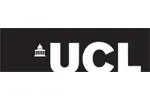We're moving! This site will be relocating to goingto.university in 2026. Please update your bookmarks to the new address.


the United Kingdom
University College London (UCL)| The award | How you will study | Study duration | Course start | Domestic course fees | International course fees |
|---|---|---|---|---|---|
| MA | Full-time, Part-time | 1 - 2 year | January, April, October | - | - |
This masters degree will:
This masters degree provides the opportunity to:
Practising teachers of English as a second or foreign language (ESL, EFL, ESOL) throughout the world. We accept teachers of other languages on the understanding that most of the examples used during the programme will be drawn from English language teaching.
Entry requirementsNormally, a good first degree in a relevant field of study and appropriate teaching experience. Candidates with less teaching experience should have an outstanding academic record and should demonstrate insight into language learning and teaching.
Core topics
(Please note that you may not be able to study all topics in any one year)
By coursework assignments of up to 5,000 words and a dissertation portfolio of up to 17,500 words.
AttendanceFace-to-face daytime and/or evening sessions.
Where do our students go?Graduates of this masters degree are currently working as:
Core modules
Below are some suggested courses at other providers that you may also be interested in:
Graduate Diploma of Engineering (Civil: Structural) Graduate Diploma
Engineering Institute of Technology
Find out moreGraduate Diploma in Clinical Nursing Graduate Diploma
Australian Catholic University (ACU)
Find out moreGraduate Diploma in Residential Work (Children's) Graduate Diploma
Kingston University London
Find out moreGraduate Diploma of Counselling Graduate Diploma
Australian College of Applied Psychology (ACAP)
Find out moreIf you do not meet the entry requirements for this course then consider one of these postgraduate preparation courses from another institution:
Graduate Diploma of Engineering (Civil: Structural)
Engineering Institute of Technology
Find out moreThere are 633 other courses listed from University College London (UCL). A selection of these are displayed below:
Join the StudyLink email list and never miss a chance to turn your study abroad dreams into reality!
